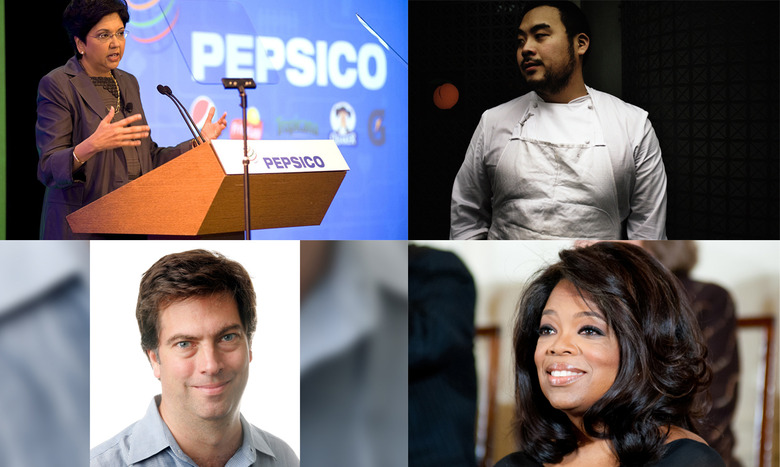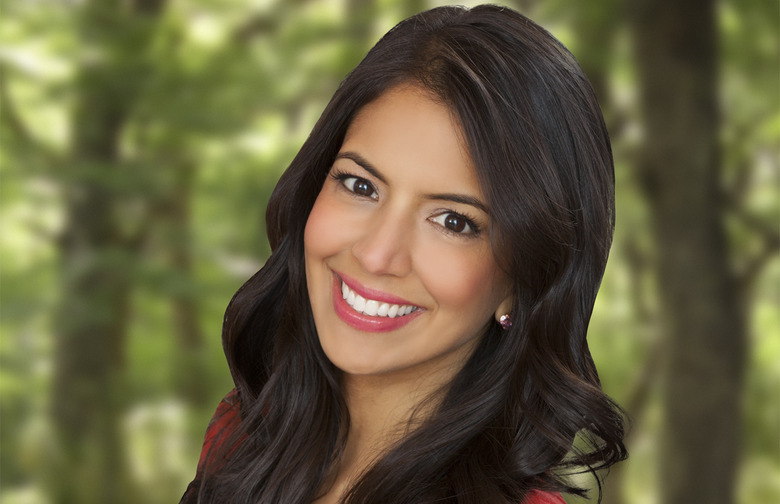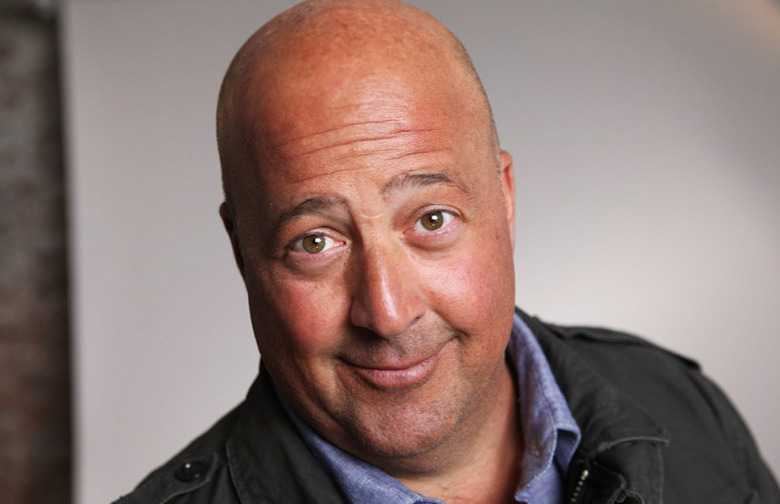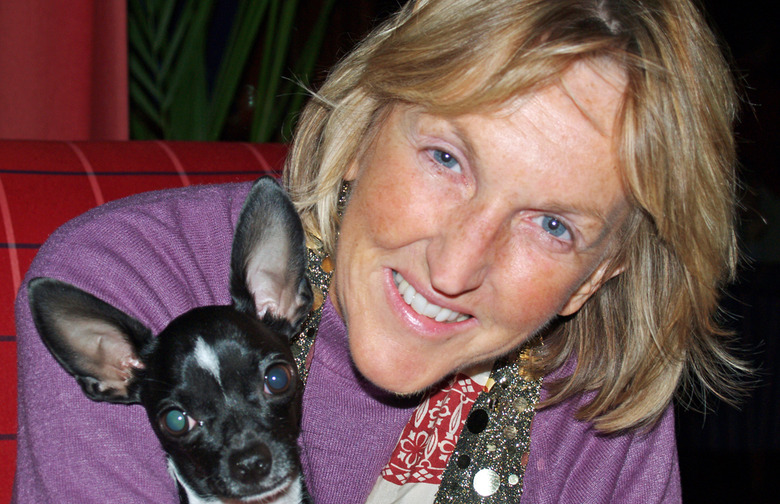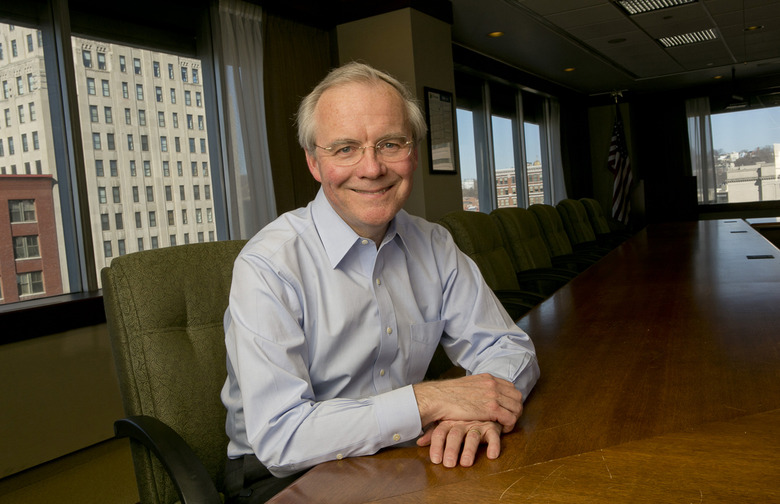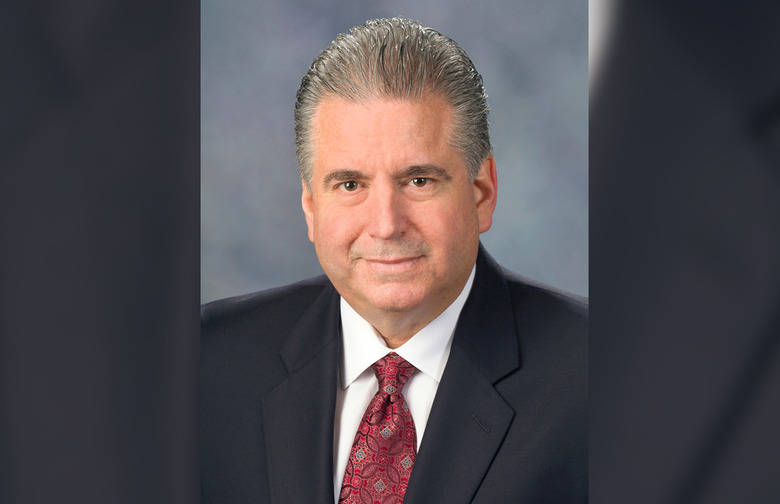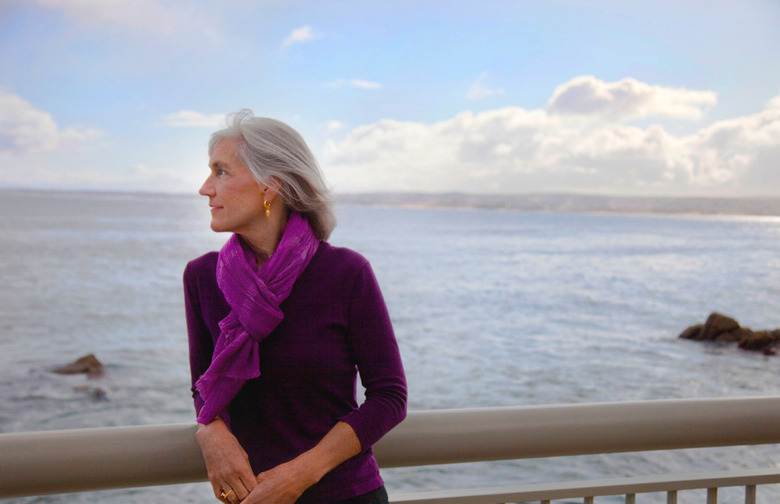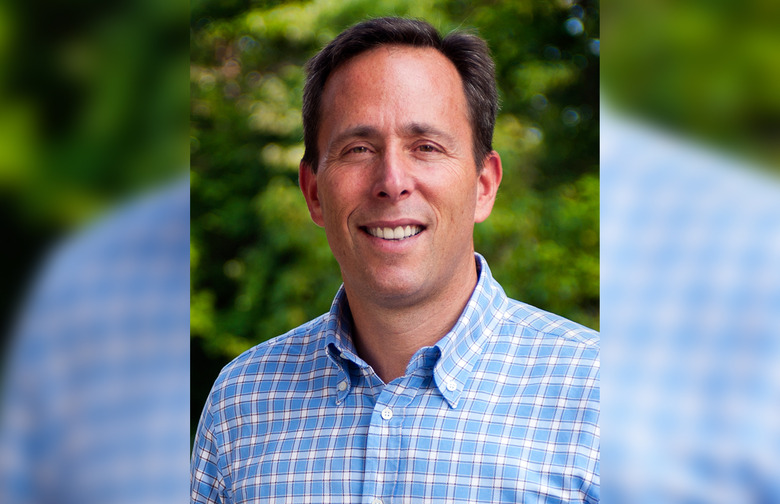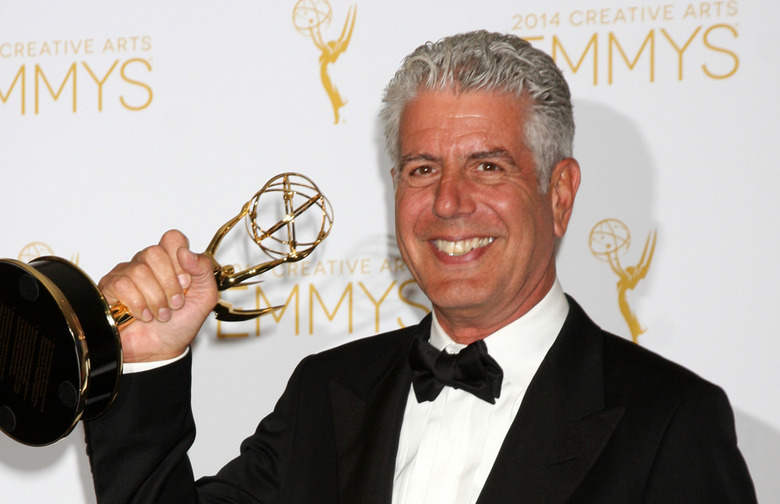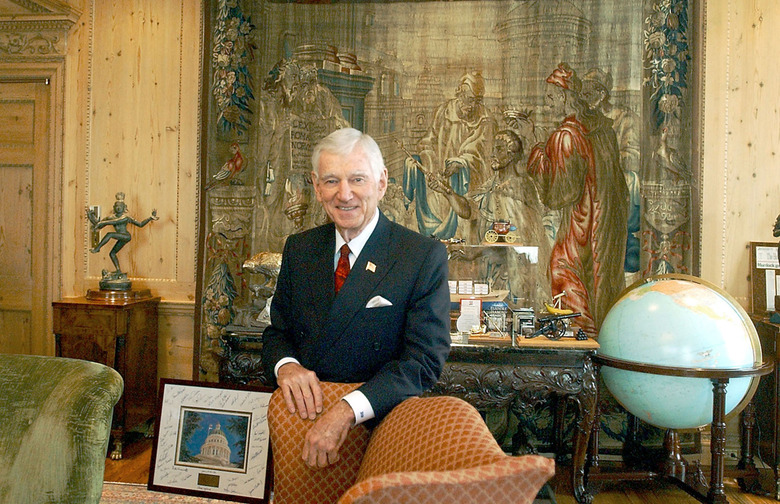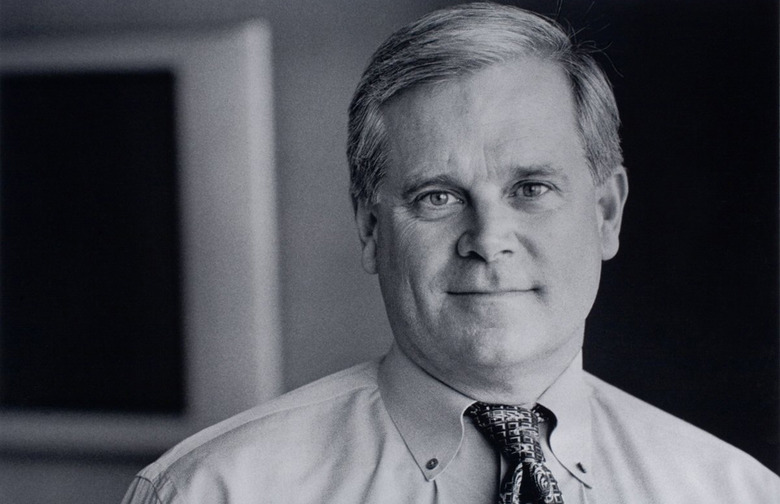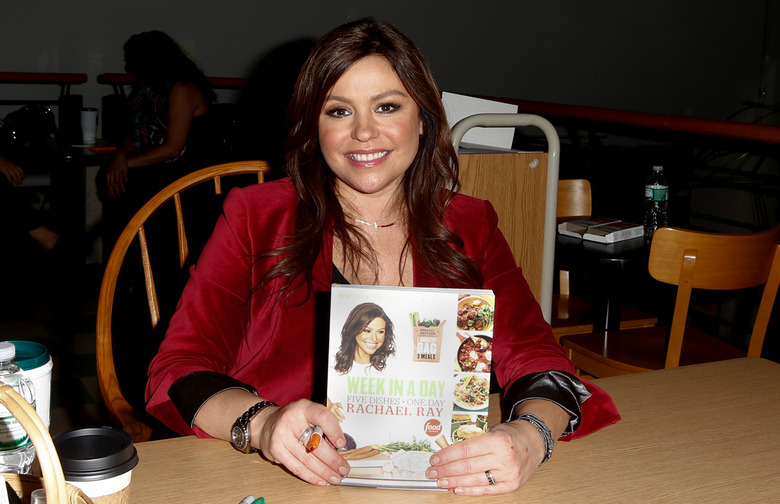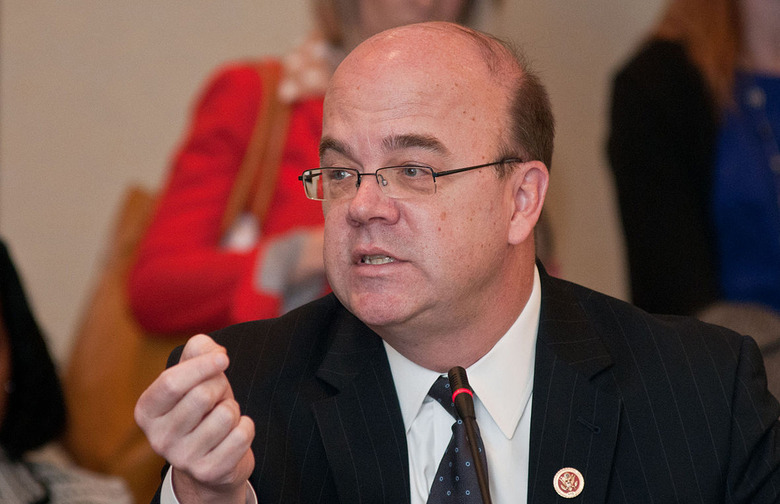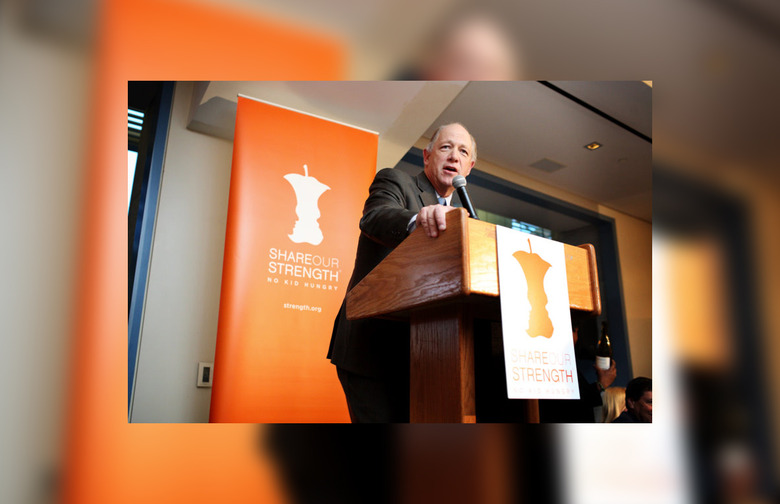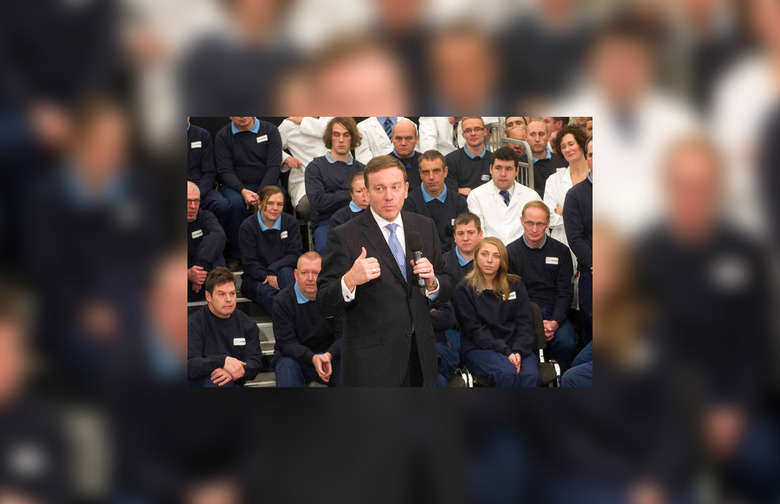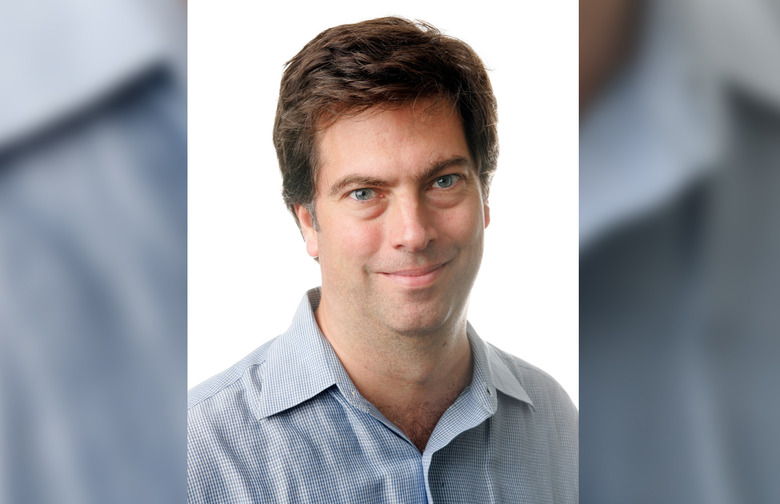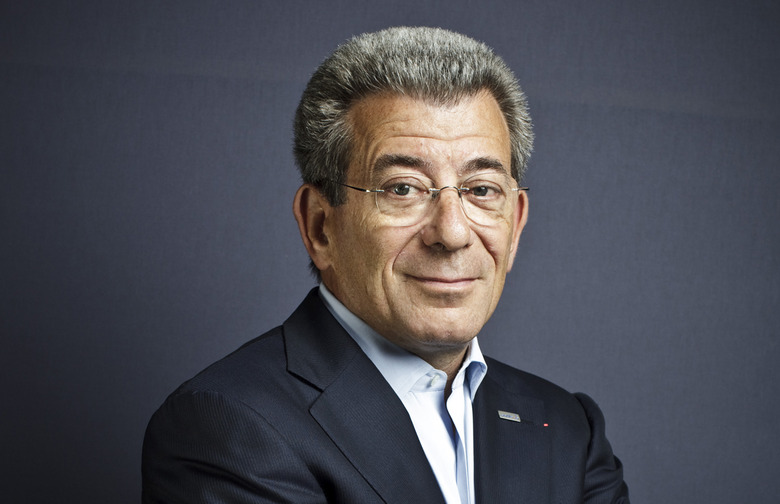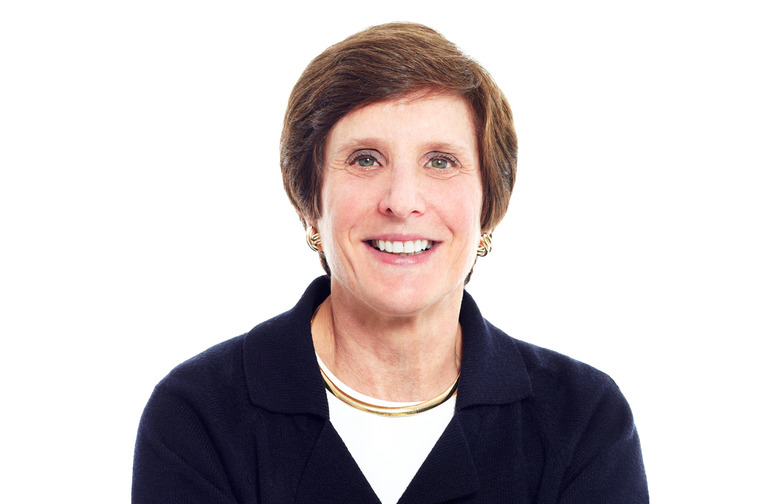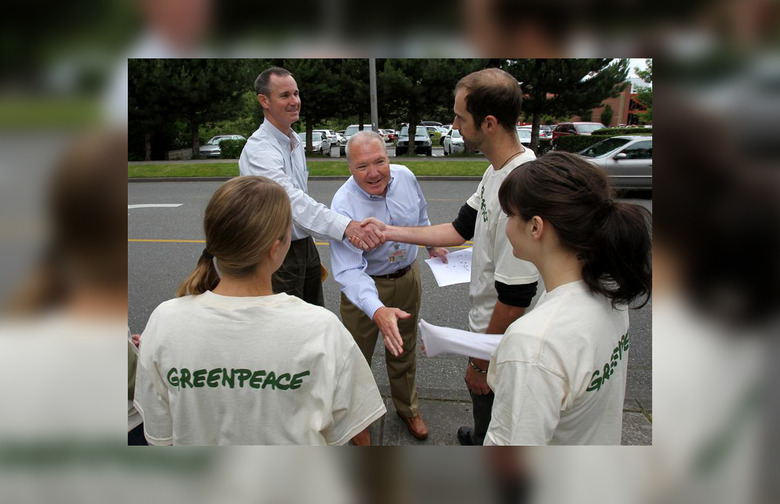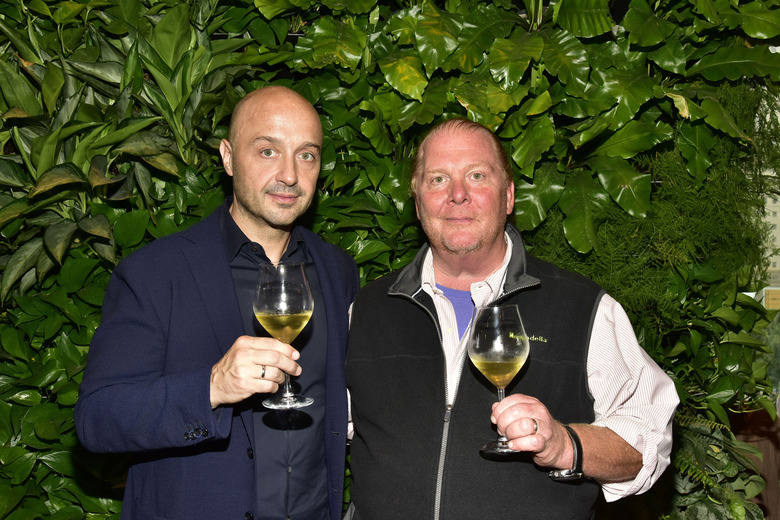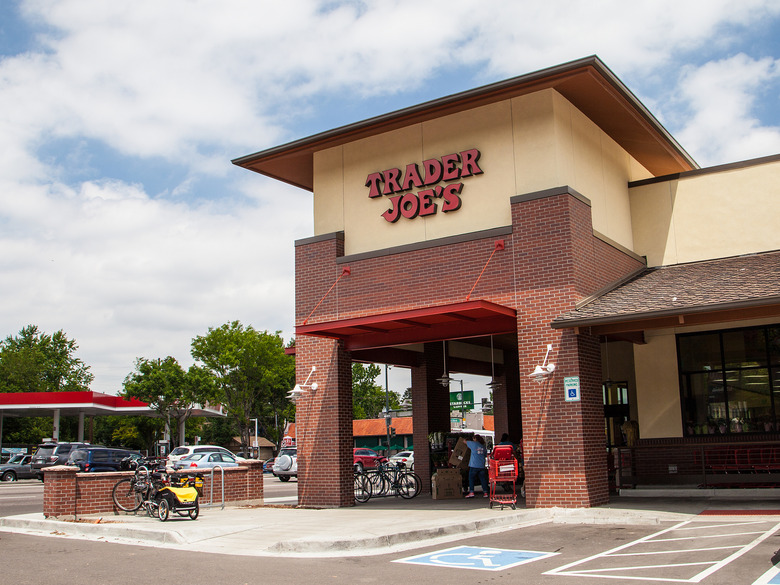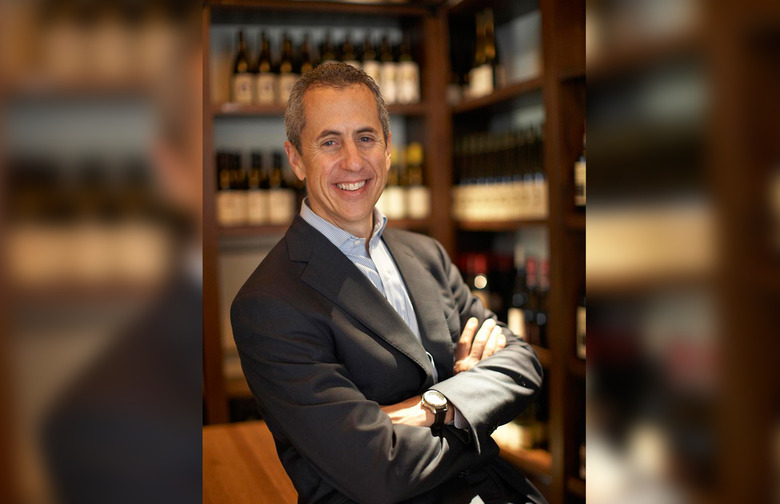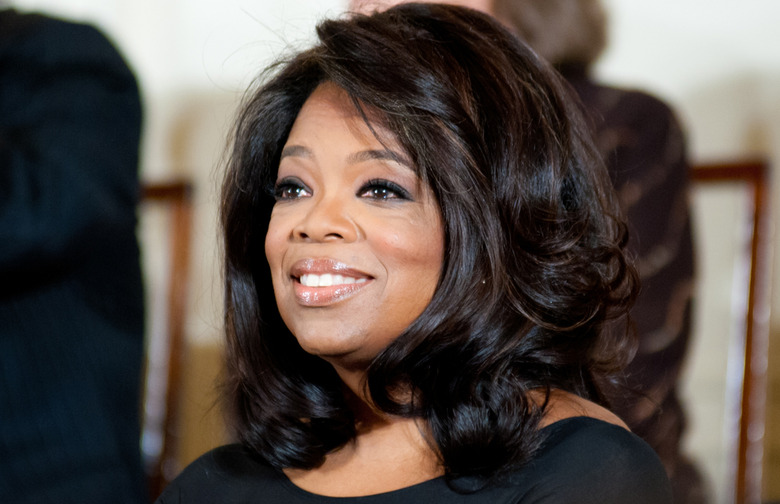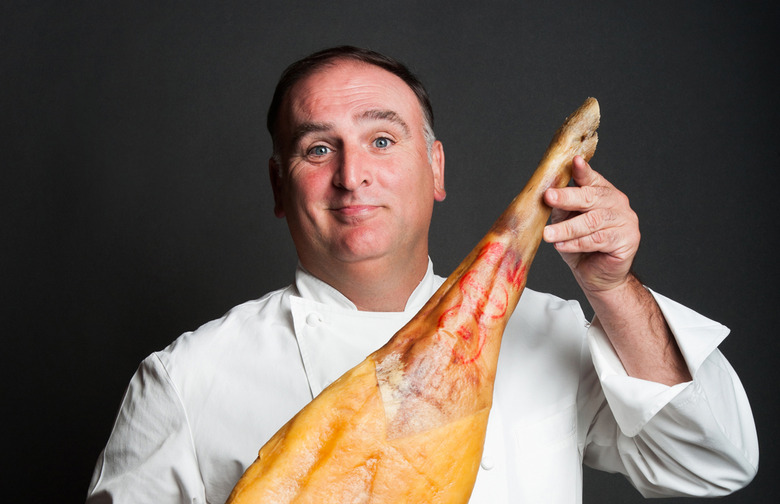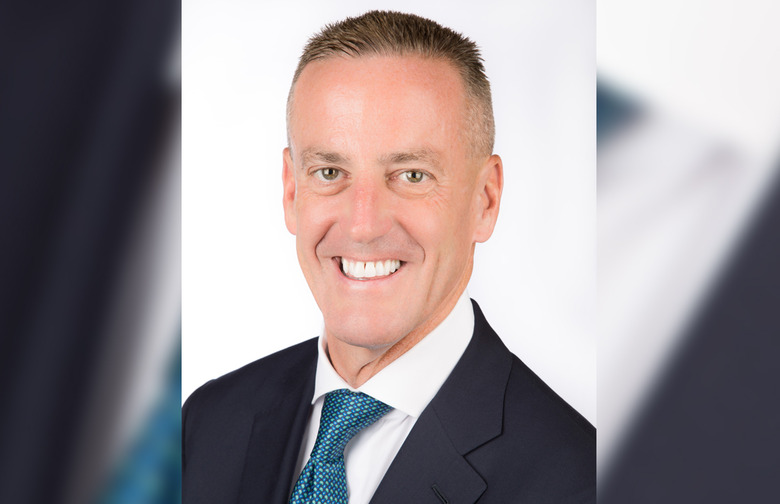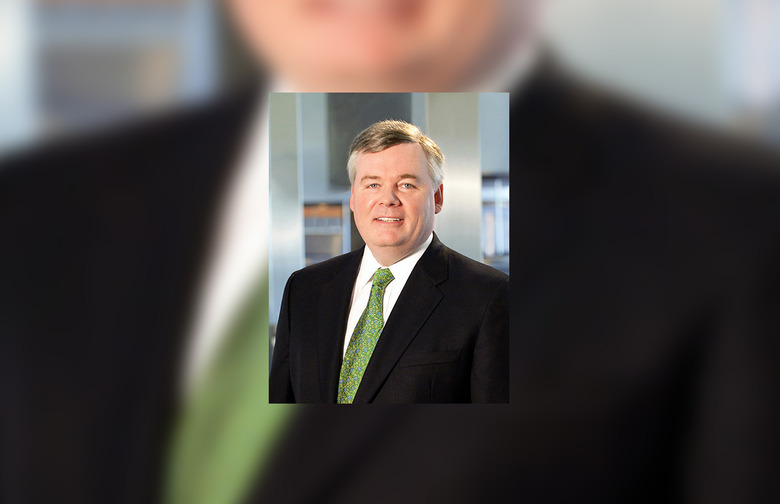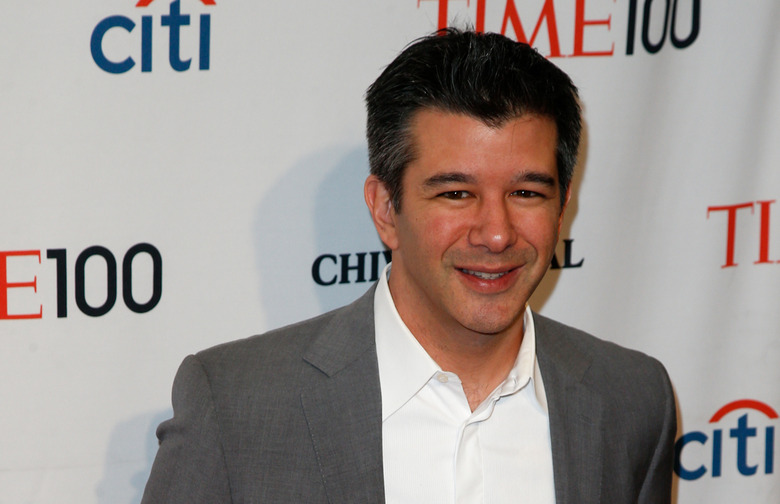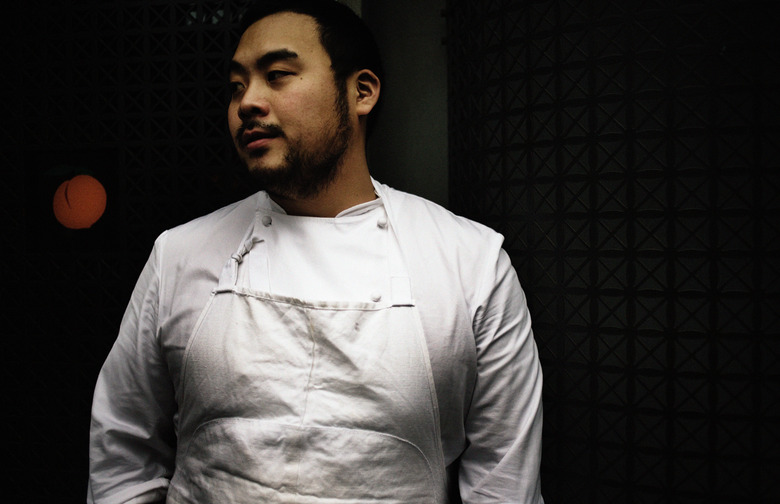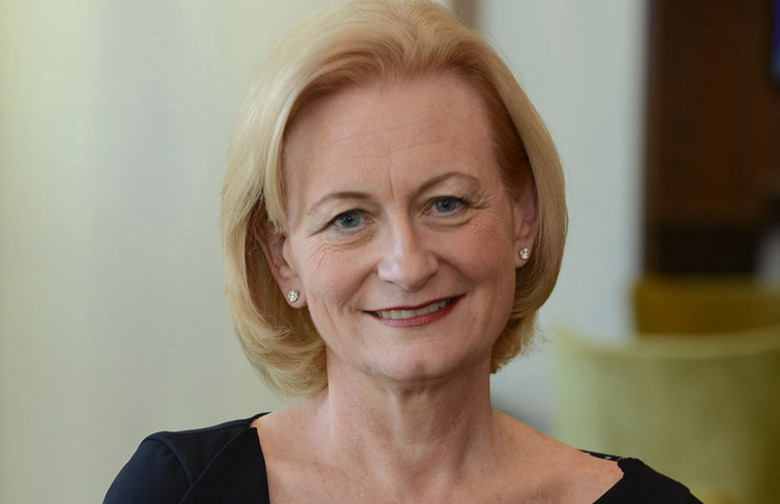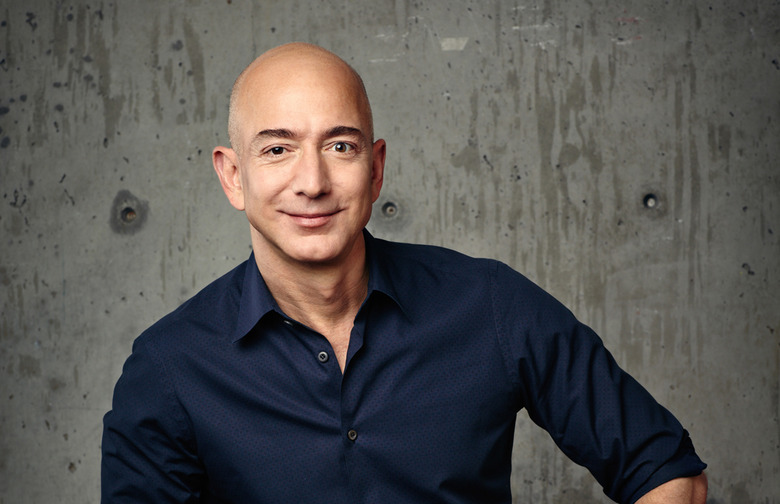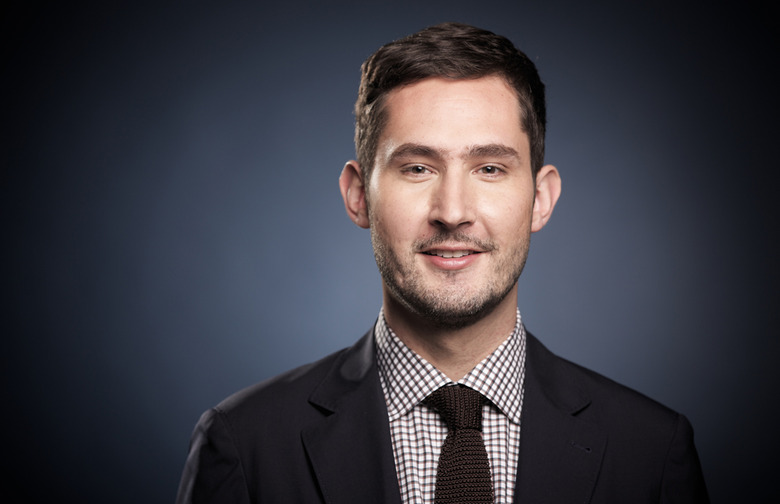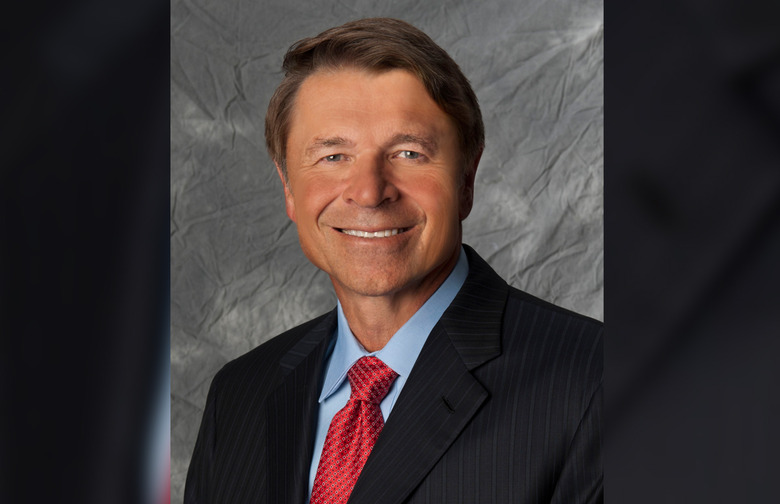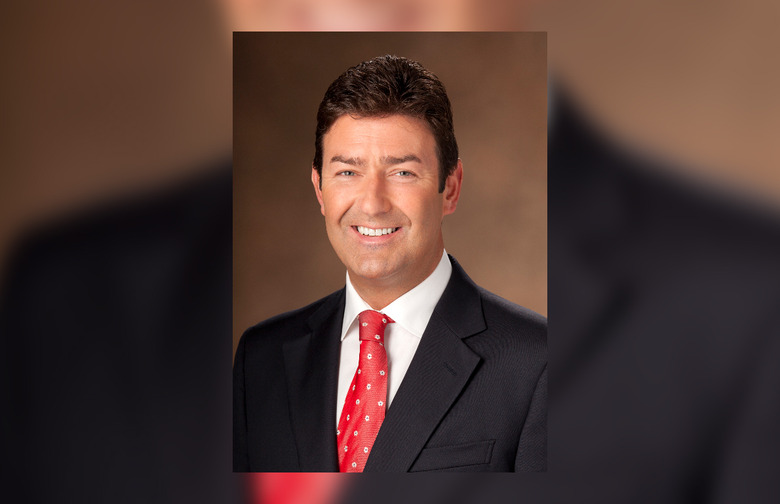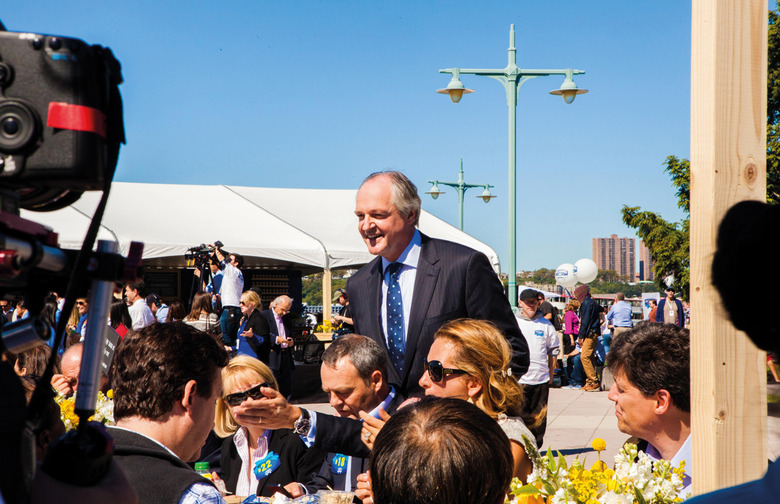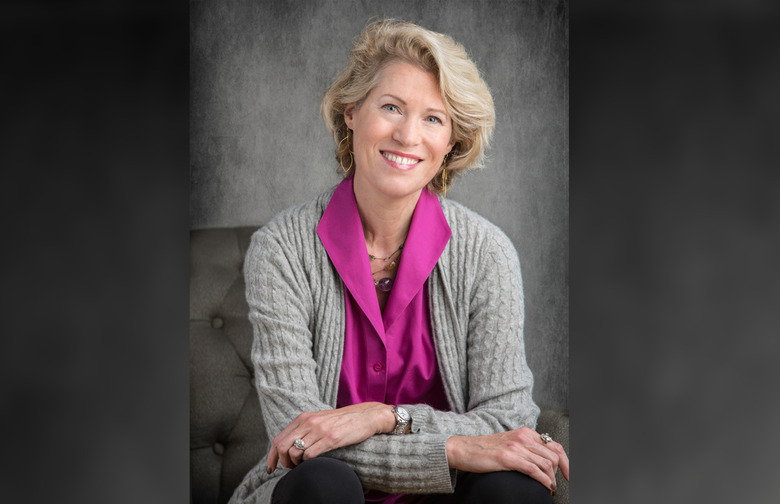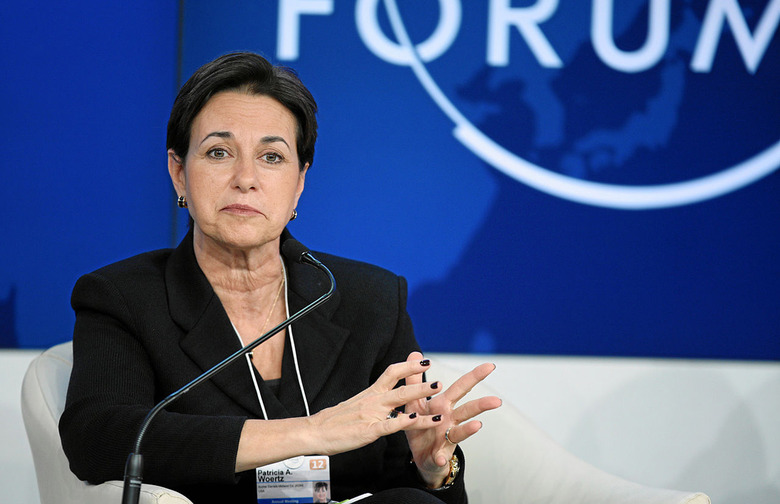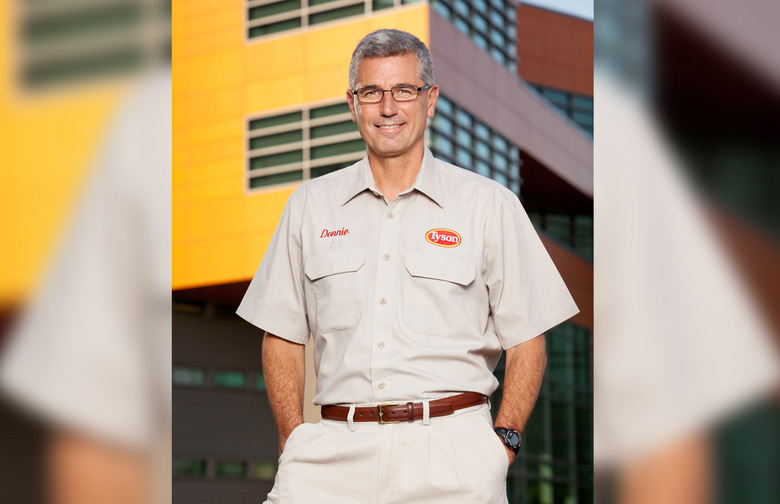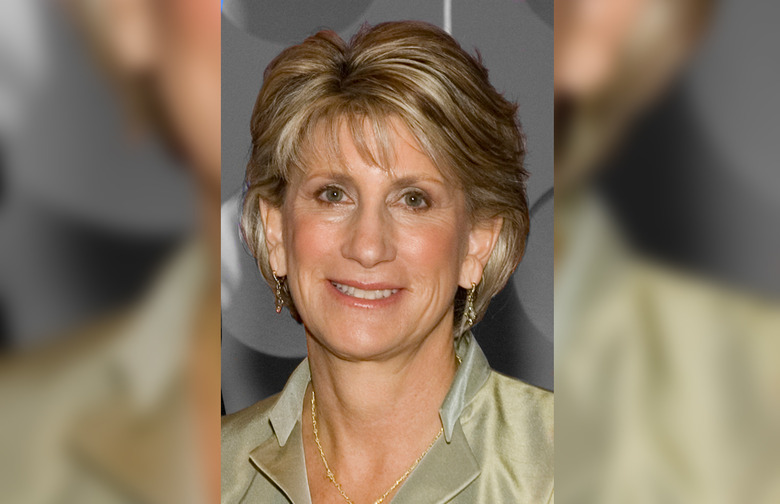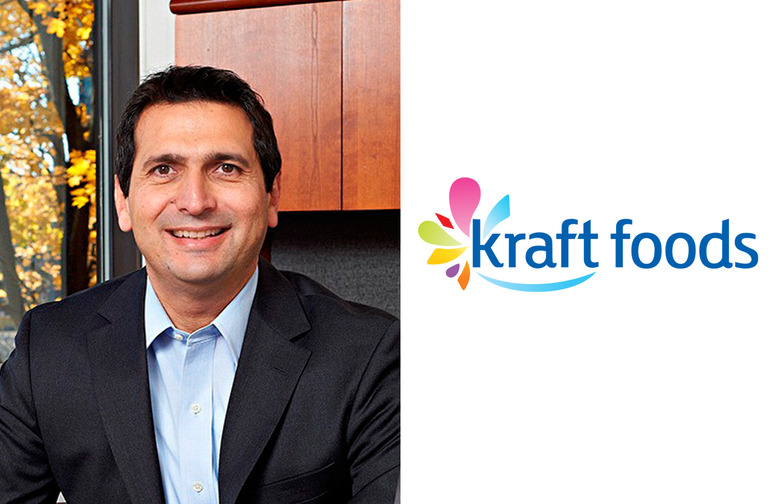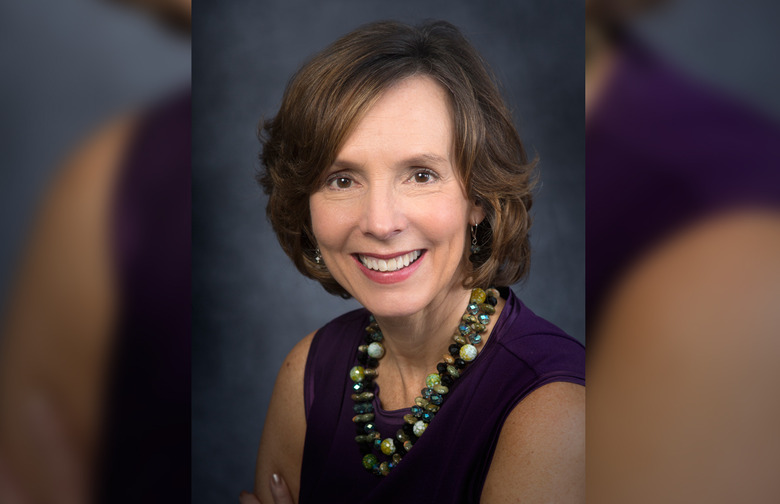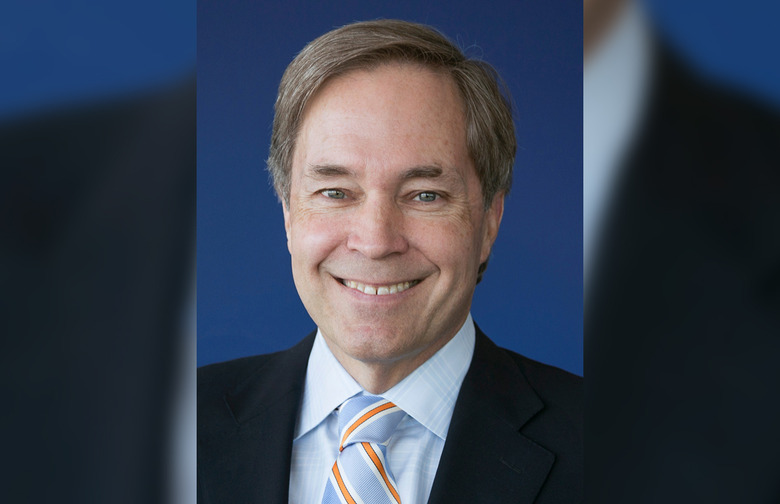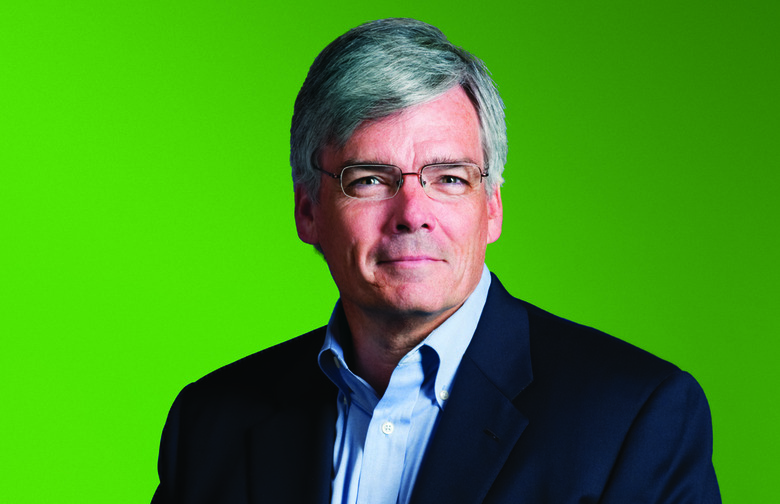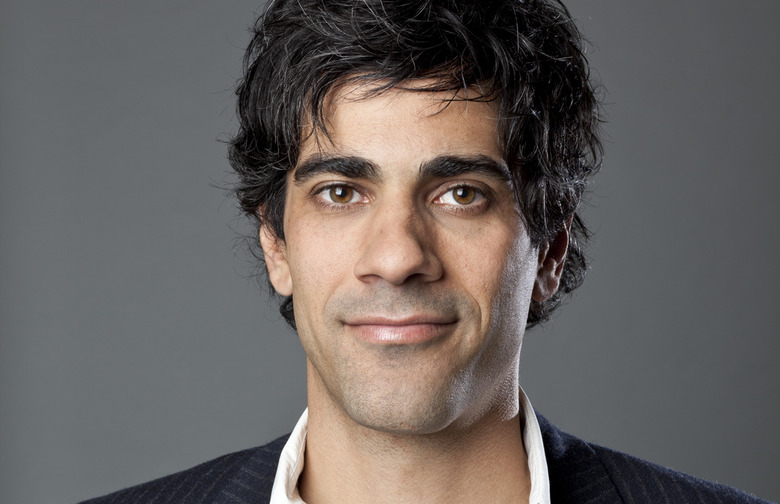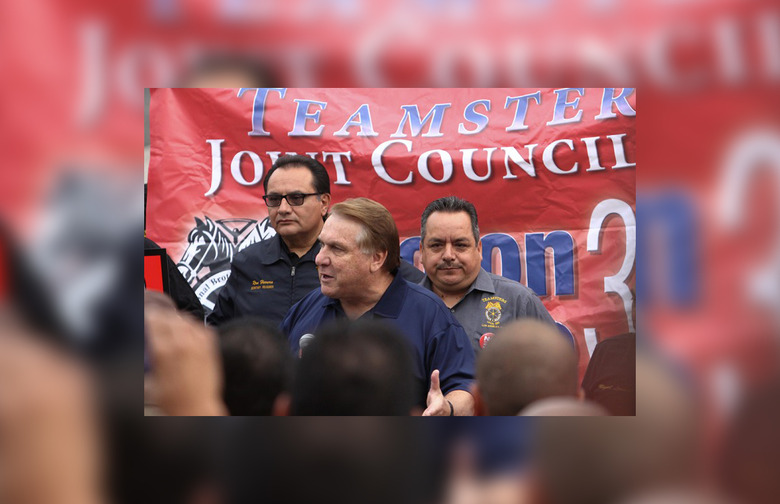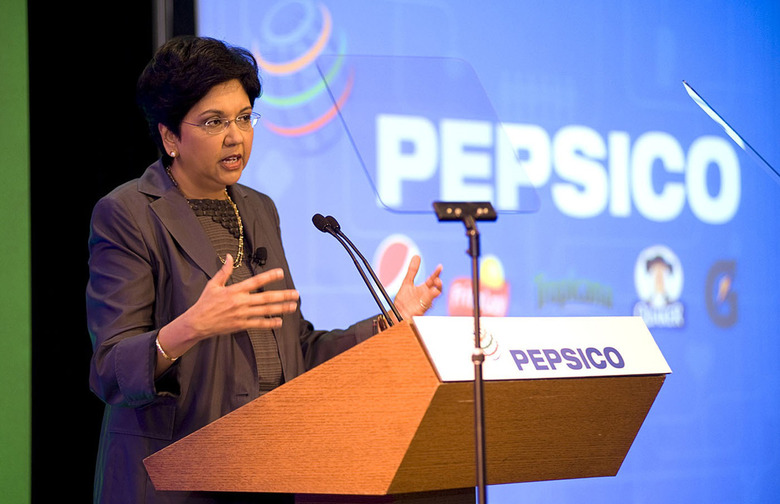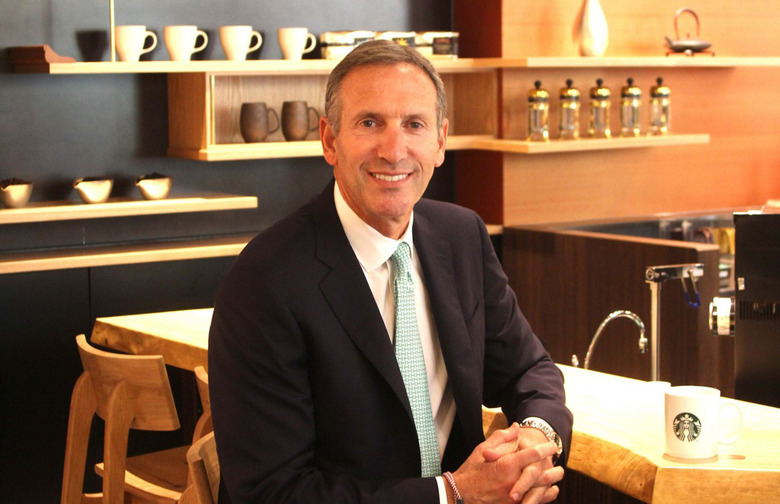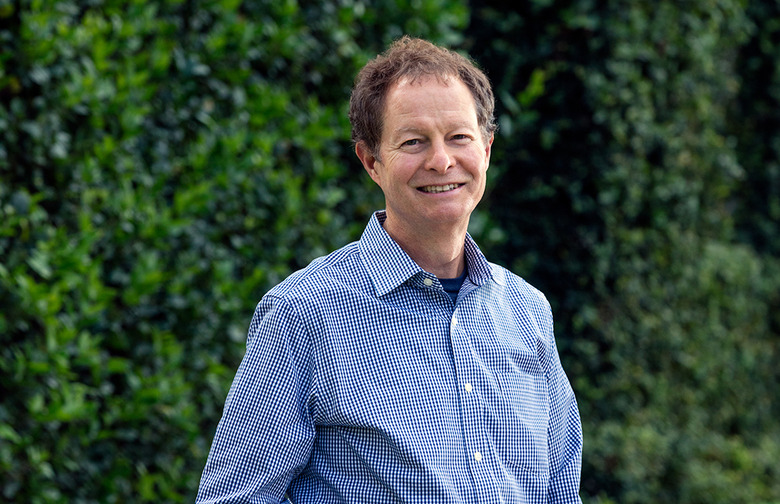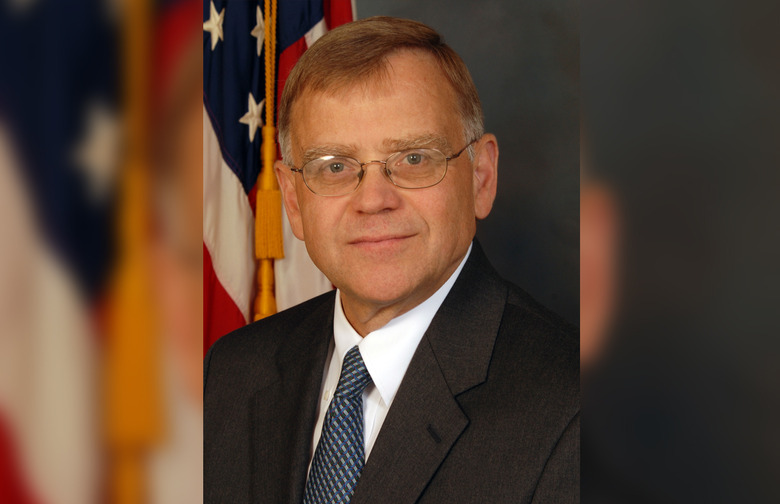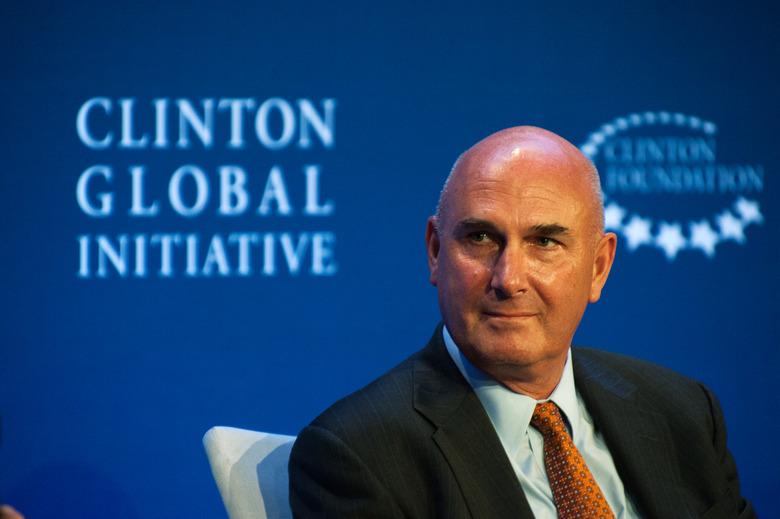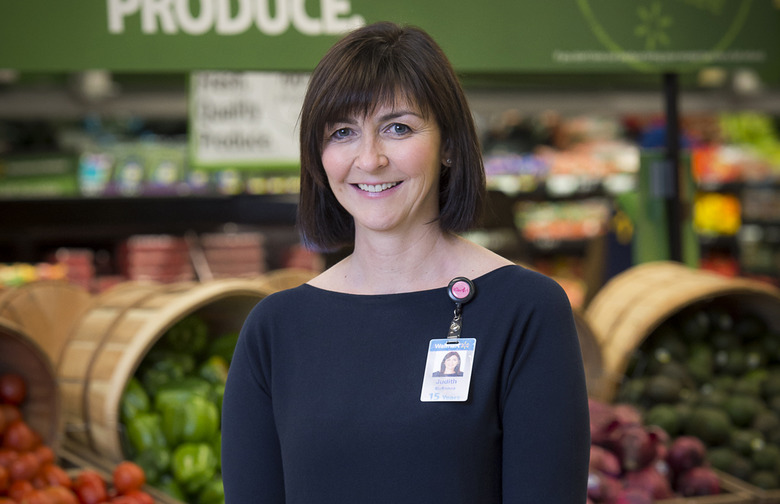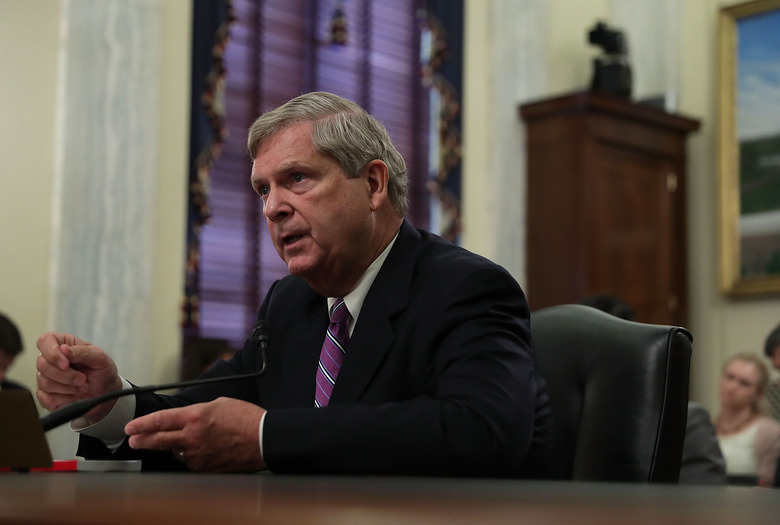America's 50 Most Powerful People In Food For 2016
Who wields power in the American food world? For the sixth year in a row, The Daily Meal is attempting to answer that question. Which people, whether CEOs of giant corporations or TV chefs or anything in-between, have the most influence over what and how we eat?
#50 Vani Hari, “Food Babe”
North Carolina-born Indian-American author, blogger, and food activist Hari has taken such enterprises as Chick-fil-A, Chipotle, Kraft Foods, Subway, General Mills, and Anheuser-Busch to task for their use of various harmful or putatively harmful substances, and the big boys have generally rolled over and removed whatever she was objecting to from their products — which is ultimately good for all of us. She is also a particularly vocal advocate of GMO labeling (and foe of GMOs in general). She definitely makes an impact. Her internet petitions pull in hundreds of thousands of signatures, and last year Time included her on their list of "The 30 Most Influential People on the Internet." Critics point out that she has no background whatsoever in nutrition, and have accused her of promoting psuedoscientific theories around subjects in which she has no expertise. She has also questioned the validity of flu vaccine, and was once quoted as saying "There is just no acceptable level of any chemical to ingest, ever" (though she was specifically referring to ractopamine and grown hormone in meat). Nevertheless, whether everything she says makes sense or not, many, many people — and corporations — listen to her.
#49 Andrew Zimmern, Host, ‘Bizarre Foods’
No one, not even Anthony Bourdain, has introduced so many people to the breadth and weirdness of the human diet. As host of the Travel Channel show Bizarre Foods and various spinoffs, native New Yorker and Minnesota resident Zimmern has visited roughly three dozen countries around the world and most of the states in America, eating crazy stuff and living a life that many people who are passionate about food and travel would kill for. He's also a reasonably prolific writer, a sometime television reporter, and former chef. Zimmern's power comes from his ability to open our eyes and stimulate our palates. We may not want to rush out and order blood stew, roast raccoon, or teriyaki cockroach, but this adventurous gastro-traveler doesn't poke fun (well, not usually) or roll his eyes insultingly back into his hairless dome (he has the most commanding bald pate in the food world since James Beard); he brings the food of the world to us — not the glossy food magazine food of the world, the real thing, daunting and stinky and essential — and in so doing, little by little, makes us all better citizens of the culinary world.
#48 Ingrid Newkirk, President and Co-Founder, People for the Ethical Treatment of Animals
The vocal head of this increasingly high-profile organization, Newkirk led the company to another banner year in 2014. They aided in pressuring Ringling Bros. and Barnum & Bailey Circus into ending its elephant acts by 2018, launched a traveling virtual reality exhibit about the life of a chicken, got companies to ban angora wool, and convinced major food companies to end a barbaric horn-removal practice on dairy cows, among other accomplishments. The group's ever-widening influence on government agencies and courts demonstrates the power that the group has harnessed through its sometimes controversial awareness campaigns.
#47 Rodney McMullen, Chairman and CEO, The Kroger Co.
Kroger and its subsidiaries form the nation's largest grocery store chain and its second-largest general retailer in terms of revenue, and the fifth-largest retail operation in the world. It operates 2,620 supermarkets and multi-department stores in 34 states. The multiple dairies, bakeries, meat plants, and other production facilities feed millions of people a year, and Kroger's buying decisions affect the market on a major scale. But Kroger also sets an example for the industry in another way. Named by Forbes as the most generous company in America, its recent philanthropic efforts include $3 million for breast cancer awareness and $1.5 million to support the work of the USO. And with the 2013 acquisition of eastern chain Harris Teeter and the 2015 acquisition of Roundy's (bringing Kroger back to Wisconsin after a 43-year absence), it continues its path to supermarket domination.
#46 Todd J. Vasos, Chairman and CEO, Dollar General
We'd just gotten used to the idea that Wal-Mart, Costco, and Target were taking over an ever-larger segment of the retail grocery business. Now Dollar General is getting into the act, and some observers think it may become the most important bricks-and-mortar grocery seller of the coming years. The Tennessee-based chain, which operates approximately 12,000 stores in 40 states (and has plans to at least double that number) has long sold grocery-store sundries (toilet paper, detergent, pet food, etc.) as well as dried packaged goods, from spices to cake mixes to instant ramen — often in packages custom-designed for the stores so that the goods may be sold for lower prices than usual (not much at Dollar General still costs only a dollar, but prices are still remarkably low). Now, the chain has been opening a series of Dollar General Markets, in some cases taking over existing small local chains, which carry a limited selection of fresh produce and meat as well as staples like bread, milk, and condiments. Under the new head of the company, Todd Vasos, a former drug store executive and a Dollar General division president, promoted from COO to Chairman and CEO last June, new store prototypes are being rolled out, and new DG Markets continue to open. Vasos says that the Markets are "a test lab" and that features from them are finding their way into the other stores. Meanwhile, groceries, refrigerated foods, and "HBC" (health, beauty, and cosmetic products) now account for about 75 percent of Dollar General's annual $20.4 billion in sales. We'd say that makes them a major player in the food world.
#45 Julie Packard, Executive Director and Vice-Chairman, Monterey Bay Aquarium
Packard, a marine biologist, has run this showplace aquarium since it was opened in 1984 with an endowment from her parents' nonprofit, the David and Lucile Packard (as in Hewlett-Packard) Foundation. In addition to being a first-rate educational facility, the aquarium spearheads numerous movements aimed at ocean conservation. Its most visible immediate effect on the American food community, though, has been through its efforts as a pioneer in the sustainable seafood movement. Chefs and responsible consumers all over the country now consult its Seafood Watch list (in the form of wallet cards, a website, and an app) of sustainable choices in fish and shellfish, thus impacting the seafood marketplace from coast to coast. The Aquarium also hosts an annual Sustainable Foods Institute, addressing such issues as global food security, urban agriculture, and innovations in aquaculture.
#44 Steven Spinner, CEO, President, and Director, United Natural Foods, Inc.
When we decide that we want to eat organic, sustainable, and/or "natural" foods, where do we get them — especially if we live in a part of the country where farmers markets only operate a day or two a week, and are seasonal at that? Whole Foods? Well, sure, but where does Whole Foods get the stuff? In large part, probably from UNFI, the country's largest distributor of natural products (edible and otherwise). UNFI distributes brands like Amy's, Organic Valley, Green & Black's, Muir Glen, Hain Celestial, Cascadian Farm, Annie's, Kashi, Back to Nature, Stonyfield Yogurt, American Flatbread, and many more, not just to Whole Foods, but to supermarkets, natural food outlets, and food co-ops all over America and in Canada and 40-plus other countries. Its Albert's Organics division is the nation's leading distributor of quality organic produce and other perishables, and UNFI also runs the Earth Origins market chain on the East Coast. If you're looking to eat green, in other words, UNFI will be glad to help.
#43 Anthony Bourdain, Chef and Television Personality
Bourdain's lurid backstage restaurant memoir, Kitchen Confidential, inspired countless people to enroll in culinary school (and countless chefs to write in-the-life follow-ups) and probably spurred many more to devote themselves to the bad-boy chef lifestyle he has now left behind. He went on to become by far the most visible non-cooking culinary figure on television with his shows on Travel Channel, and his CNN follow-up, Anthony Bourdain: Parts Unknown, is even more hard-hitting and journalistic than his previous efforts. Through his various endeavors, he has helped to popularize the pastime of seeking out memorable food scenes, from the bizarre to the iconic, across the country and around the world. And with his forthcoming New York food hall, which will have more than 100 stalls featuring bakers, butchers, prepared foods, and even a Singaporean-style hawker market, his influence only continues to grow.
#42 David Murdock, CEO, Dole Food Company
The world's largest producer of fruits and vegetables, Dole operates in more than 90 countries, marketing bananas, pineapples (fresh and packaged), grapes, strawberries, and salads, along with all manner of other fresh and frozen fruits and juices. In 2013, billionaire David Murdock bought the company for $1.2 billion, taking it private. The 92-year-old Murdock previously brought the company back from near-bankruptcy in 1985, has been committed to finding a cure for cancer, and founded the Dole Nutrition Institute to advocate the benefits of a plant-based lifestyle.
#41 Bill Marler, Foodborne Illness Lawyer and Attorney
An accomplished personal injury and products liability attorney, Marler has been litigating foodborne illness cases since 1993, when he represented Brianne Kiner, the most seriously sickened survivor of the Jack in the Box E. coli outbreak, creating a Washington State record for an individual personal injury action ($15.6 million). More than a lawyer, Marler has become an advocate for a safer food supply, petitioning the USDA to better regulate pathogenic E. coli, working with nonprofit food safety and foodborne illness victims' organizations, and helping spur the passage of the 2010-2011 FDA Food Safety Modernization Act. It would only make sense that Marler has been front and center in the Chipotle foodborne illness fray; he's representing several victims of the outbreak.
#40 Rachael Ray, Television Personality
With her bubbly personality and contagious catchphrases (like "EVOO" and "Yum-O"), Ray appeals to ordinary people, not food snobs or self-styled connoisseurs. In 2006, she launched a successful self-titled daytime TV show, and is currently the editorial director of her own lifestyle magazine, Every Day with Rachael Ray. Her cooking shows are still a Food Network staple, and her influence among daytime talk show-watchers can't be underestimated.
#39 Jim McGovern, Co-Chair, House Hunger Caucus
U.S. Representative Jim McGovern, representing Massachusetts' second congressional district, is also co-chair of both the House Hunger Caucus and the Congressional Hunger Center. At the bipartisan House Hunger Caucus, which works toward fighting hunger in America and around the world, he's an advocate for expanding child nutrition programs and obtained more than $800 million in funding for hunger programs, and he's pushed for the creation of a "hunger czar" position to tackle food insecurity at the Congressional Hunger Center.
#38 Bill Shore, Founder and CEO, Share Our Strength
This national nonprofit, whose ambitious goal is nothing less than ending childhood hunger in America, has teamed up with core partners like Food Network, Walmart, Arby's and Citi. The cornerstone of its work is No Kid Hungry (with Academy Award-winning spokesperson Jeff Bridges) a national campaign connecting kids with the healthy food they need, every day. In 2013, Shore partnered with chef Tom Colicchio and filmmakers Kristi Jacobson and Lori Silverbush to help promote A Place at the Table, a film that shines a light on hunger in America. He was a Congressionally-appointed member of the National Hunger Commission, which was tapped to study how to end hunger in America. No Kid Hungry raises money to end childhood hunger through such efforts as the popular Taste of the Nation events across the country and both the Bake Sale for No Kid Hungry and Dine Out for No Kid Hungry.
#37 Paul Grimwood, CEO and Chairman, Nestlé USA
Founded in Switzerland as the Anglo-Swiss Condensed Milk Company in 1866, Nestlé is today the largest food company in the world in terms of revenue. Among its many brands in the U.S. are Nespresso, Nescafé, Coffee-Mate, Shredded Wheat, Stouffer's, Hot Pockets, Lean Cuisine, Gerber, PowerBar, Toll House Cookies, Raisinets, After Eight, three top brands of ice cream (Edy's, Dreyer's, and Häagen-Dazs), and, well, Alpo. It also owns the Jenny Craig weight loss program and, through its Nestlé Waters division, gives us much of our bottled water, under such labels as Poland Spring, Arrowhead, Acqua Panna, Perrier, and Vittel. Grimwood, who moved into his position in August of 2012 (he was formerly Nestlé's man in the U.K. and Ireland), presides over the U.S. operations of a company whose products are probably found in almost every American home where there's a baby, a dog, a caffeine addict, or a sweets lover — which seems to have it pretty well covered.
#36 Pete Wells, Restaurant Critic, The New York Times
Whoever holds this post is, ipso facto, the most powerful restaurant reviewer in the country. Wells has successfully made the job his own since taking on the position in 2011, and writes witty, insightful reviews, heavy on the Asian cuisine (but is that necessarily a bad thing?). His weekly assessments of New York (and occasional out-of-town) eating places, like those of his predecessors, can turn them into overnight successes or nudge them toward failure, and the opinions he expresses, by extension, influence chefs and restaurateurs all over America. What he writes about next Wednesday will quite possibly be at your local strip mall by November.
#35 Michel Landel, CEO, Sodexo
Landel has been CEO of Sodexo, the French foodservice corporation that provides food for everything from U.S. Marine Corps mess halls to dozens of colleges and universities around the country, since 2005. Since then, he's not only overseen a revolution in college dining hall fare, he's also launched Sodexo's STOP Hunger program, which combats hunger, malnutrition, and food waste in 42 countries, and he has taken great strides toward diversity and inclusion in Sodexo's hiring practices.
#34 Irene Rosenfeld, CEO, Mondelez International
It was Rosenfeld's decision to spin off Mondelez from Kraft in 2012 to handle North American grocery operations, and before that, as CEO and then Chairman of Kraft, she boosted growth by reinvigorating iconic brands, transformed their portfolio, and expanded its presence in emerging markets. With 2014 revenues of $33 billion, a global initiative intended to broaden the reach of global nutrition efforts and sustainable agriculture, and the 2013 purchase of nine tech startups with the goal of driving mobile marketing and purchasing, Rosenfeld has brought Kraft fully into the twenty-first century. The same activist investors who pressured Rosenfeld to break Kraft and Mondelez into two companies are still pressuring her to cut costs and increase revenue, and she's responding by boosting profit margins through tactics like zero-based budgeting and closing old factories, earning her the No. 9 spot on Fortune's 2015 ranking of America's Most Powerful Women.
#33 Craig Jelinek, CEO, Costco
Costco is the second-largest retailer in America after Walmart (and the third-largest in the world) and the largest membership warehouse club in the country. Under Jelinek, who started his career as a checkout boy, Costco has continued its mission of making quality name-brand products, food and drink prominently among them, accessible to a wide clientele through bulk purchasing. Fresh and packaged foods account for 32 percent of Costco's annual net sales, with "sundries," including candy, snack foods, and both alcoholic and non-alcoholic beverages accounting for another 23 percent. "One of the things people will always have to do is eat," says Jelinek. "I don't see that changing." Jelinek has become to poster boy for the efforts to increase the minimum wage, as Costco's employees start out earning $11.50 an hour. A recent commitment to cage-free eggs was a major boon to the burgeoning movement.
#32 Mario Batali and Joe Bastianich, Chef/ Restaurateurs
The dynamic duo of chef Mario Batali and his business partner restaurateur Joe Bastianich are on fire. The former, an ebullient, red-headed, orange-Croc-wearing culinary personality heads up The Chew, an ABC-TV daytime offering proving that there's a place for food shows on non-food channels. This isn't the only way that Batali is changing our perceptions about what is probably the world's most popular cuisine — and about food in general. Whether he's dispensing the secrets of soulful Italian cooking, promoting their ever-expanding Eataly market/eatery concept (which also has a location in Chicago, with another New York store and Eatalys in Boston and Los Angeles in the works), or just offering his insights on culinary culture, we're pretty sure we'll be hearing a lot from him for a long time to come. Oh, and it doesn't hurt that his dozen-plus restaurants, run in partnership with "restaurant man" Joe Bastianich, are mostly stellar; their first New York restaurant since Del Posto opened in 2005, La Sirena, is slated to open sometime this year.
#31 Dan Bane, Chairman and CEO, Trader Joe's
From its "Two-Buck Chuck" house wines (now right-priced to "Three-Buck Chuck") and other wine and beer bargains — in states where grocery-store sales of alcohol are allowed — to its award-winning (and highly original) frozen food section to its great selection of, and palatable prices for, usually expensive staples like cheese, coffee, and nuts, Trader Joe's remains a grocery original. With 457 stores nationwide in 41 states and counting, Trader Joe's still stands alone in its style of savvy retailing. Its Southern California fresh-market roots have stuck (there is a famous Trader Joe's list of ingredients the chain won't accept in products they sell), and it has expanded the culinary vocabulary of a widespread customer base. Along the way, it has made food shopping rather fun.
#30 Danny Meyer, Restaurateur
Meyer's restaurants — among them Gramercy Tavern, Union Square Café (which is transitioning into a larger space), Maialino, North End Grill, and The Modern — number among New York City's top dining destinations. He has also helped raise standards of restaurant service through his rigorous training programs (a Meyer establishment on a résumé is, for would-be managers, the equivalent of a Keller restaurant for would-be chefs), and even written a non-restaurant-specific book called Setting the Table: The Transforming Power of Hospitality in Business. Then, of course, there's the Shake Shack effect. Not only has the immensely popular burger mini-empire continued expanding — there are now more than 80 of them and counting worldwide — it has served as a model for other chefs to serve quality food in a low-end context. Meyer made major waves last year when he announced that he'd banish tipping at all his New York restaurants, proving once again that he's not afraid to be at the vanguard of dining trends, and plenty of other chefs and restaurants are following his initiative, including another restaurant he founded (though no longer involved with) Eleven Madison Park.
#29 Oprah Winfrey, Media Mogul
As Queen of All Media, Winfrey has made the careers of such celebrities as chefs Paula Deen and Art Smith and the health and diet gurus known as Dr. Phil and Dr. Oz. When she decided that an obscure tropical fruit call the açai berry was the next magic elixir, sales of açai-flavored products soared. When she warned viewers about the dangers of eating contaminated meat during the Mad Cow hysteria, she worried Texas cattlemen so much that they filed a multimillion-dollar defamation suit against her (they lost). While Winfrey no longer has her famous daily talk show, her influence is still felt through her cable network OWN, as well as her monthly magazine O. And if anyone has any doubt that her influence is on the wane, all they have to do is look at Weight Watchers' stock's 105-percent jump since she announced the purchase of a 10 percent stake in the company last October.
#28 José Andrés, Chef-Restaurateur
This ceaselessly energetic Asturian-born chef has almost single-handedly introduced Americans to real Spanish food — both avant-garde and traditional — as it is prepared and served in the twenty-first century, through his restaurants (among them minibar, é by José Andrés, three Bazaars, and four Jaleos, stretching from Washington, D.C. to Los Angeles by way of Las Vegas), but also through his cookbooks and TV appearances. With his nonprofit World Central Kitchen, his activities in Haiti (which include a film project to celebrate that country's gastronomy), and other initiatives, Andrés is also a social activist, reminding fellow chefs of the breadth of their responsibilities to their communities. He was also named The Daily Meal's 2012 American Chef of the Year. His newest venture, fast-casual concept Beefsteak, exploded onto the DC scene last year, and it appears to have a very promising future.
#27 Eric J Foss, CEO, Aramark
With $14.8 billion in revenue in 2014, Aramark is the 23rd-largest employer on the Fortune 500. It provides food and facility services to thousands of clients in 22 countries, and manages restaurants and concessions at everything from corporate offices to schools, hospitals, national parks, and stadiums. Foss was brought on as CEO in 2012, and every day he and his team makes decisions about what hundreds of thousands of people will be fed.
#26 Tim Ryan, President, Culinary Institute of America
There are plenty of cooking schools around the country (including the estimable International Culinary Center and Institute of Culinary Education in New York City) but the most prestigious, widely known of all is the CIA (and we've heard all the jokes). A 1977 graduate of the school — which started life in New Haven in 1946 and moved to a former Jesuit seminary in Hyde Park, New York, in 1970 — Ryan took the reins in 2001, and the institution has thrived under his direction. A roster of CIA graduates or former students reads like a history of contemporary American (and occasionally non-American) cuisine. Anthony Bourdain, Grant Achatz, Enrique Olvera, Michael Mina, Charlie Palmer, Todd English, Cat Cora, John Besh, Anne Burrell, David Burke, Roy Choi, Susan Feniger, Michael Symon, Geoffrey Zakarian... the list goes on and on. Under Ryan's directorship, the school has added degree programs in culinary management, embraced modernist techniques in some of its classes, opened a brewery, and launched satellite schools in San Antonio (where Latin American food is the specialty) and Singapore. (A landmark branch at Greystone in the Napa Valley was established in 1995.) There are plenty of great chefs out there who haven't been within a hundred miles of the CIA, but it remains the gold standard for serious instruction in the culinary arts, and Ryan just keeps pushing it forward.
#25 Travis Kalanick, Founder, Uber
What does this celebrated, sometimes controversial ride-hailing app have to do with food? Plenty. First of all, there's the difficult-to-measure but indisputable effect the company has had on the drinking habits of modern-day Americans, in restaurants and bars alike. In big cities and small towns all over the country — all over the world — Uber has cars available, on short notice, to take drinkers home safely (sure, taxis do too, but in some cities they're impossible to find on the street, as in Kalanick's native Los Angeles, and take forever to arrive if ordered, and in other cities — like Manhattan — they're outnumbered by Uber cars by something like four to one). More than that, though, it has UberEats, a restaurant delivery service whose roots are in Uber's massive summertime ice cream deliveries in 2014 and 2015 to 144 and 252 cities around the world, respectively. UberEats currently offers full-menu service from restaurants in 10 U.S. cities, with more to be added constantly. Phil Lempert, on his supermarketguru.com site, recently proposed that this is just the beginning. "The competition for Uber," he writes, "is not Lyft or your local Yellow Cab service, it is every supermarket and restaurant on the planet." He points out that traditional supermarket chains are closing down or shrinking and that "Millennial and Generation Z shoppers, who grew up with mobile devices, want to buy 24/7 and see no difference between buying online or in a store." He suspects, he says, that Uber is using food delivery as a way to learn more about their customers' food preferences, with an eye to grocery delivery. Food is the largest retail category, and, as Kalanick has said, "If we can get you a car in five minutes, we can get you anything in five minutes."
#24 David Chang, Chef and Restaurateur
Arguably no chef and restaurant owner has had more influence on young urban chefs and diners in recent years than Chang. He found a middle ground between food trucks and pop-ups on one hand and too-serious restaurants on the other, proving that quality dining could exist in minimalist surroundings and that ramen, kimchi, pork buns, and fried chicken could be fine-dining fare if they were based on the best raw materials and skillfully cooked. He encouraged (knowingly or not, at first) imagination and energy and style in up-and-coming chefs, his own and otherwise, and incidentally helped give hip Korean food its modern culinary currency. He has opened successful restaurants not just in New York City but in Washington, D.C., Toronto, and Sydney; his pastry chef, Christina Tosi, has redefined the American dessert repertoire; he launched the smartest food magazine of the twenty-first century (the award-winning, idiosyncratic food Lucky Peach); and even developed his own food-delivery app, Maple, and introduced an innovative reservation system. The industry watches Chang and learns from him — and if they sometimes try to one-up him, that's even better for food in America.
#23 Dawn Sweeney, President and CEO, National Restaurant Association
The NRA that has been in the news a lot lately isn't this one (alas) — but as the country's main food-service lobbying organization, the National Restaurant Association represents more than 500,000 establishments around the country, from fine-dining restaurants and fast-food chains to food suppliers and nonprofits. It has also set up food safety programs; it provides scholarships in hospitality and culinary studies, assists its members with maintaining sound environmental practices, and runs the Kids LiveWell campaign encouraging restaurants to serve healthy options for children — while meanwhile opposing Obamacare and efforts to raise the minimum wage.
#22 Jeff Bezos, Founder and CEO, Amazon
Perhaps you've heard of Amazon, founded by Bezos, a onetime Wall-Streeter from New Mexico, as an online bookshop in a Seattle garage in 1994? Last summer it officially became the world's largest retailer, surpassing even Walmart. Books are still a key part of the business — nobody sells more cookbooks — but today the company will also be happy to supply you with anything from fountain pens to camshafts, showerheads to stereos, piano lessons to paintball guns. Oh, and food. And wine. The site currently offers at least a million (!) different food items, from breads to jams and jellies to soups and stocks, as well as around 10,000 different wines — and that's not to mention cookware, glassware, table settings, barbecues and smokers, kitchen furniture, and kitchen appliances large and small. In 2007, Bezos got into the grocery delivery business, too, going head-to-head with Fresh Direct and Peapod and now trucking food to folks not only in Seattle, where it launched, but in Los Angeles, San Francisco, San Diego, Philadelphia, Baltimore, Austin, New York City, parts of New Jersey, and even London. Rumor has it that Amazon's next move into food will be an 11,600-square-foot drive-through grocery store in Sunnyvale, California, between San Jose and Palo Alto. His company isn't the world's largest grocery supplier yet, but we can see no reason why it won't be, probably pretty soon.
#21 Kevin Systrom, Co-Founder and CEO, Instagram
This insanely popular photo-sharing and social networking site, which adds the frosting of a photo manipulation system that allows users to apply various special effects to their images (doubtlessly rescuing countless lousy shots by turning them arty), must be doing something right: Facebook bought them in 2012 for about $1 billion. Instagram lets people make restaurant discoveries and get cooking ideas based on what their friends and networks are experiencing — and taking pictures of (each picture being, as we all know, worth a whole passel of words).
#20 David C. Novak, Executive Chairman, Yum! Brands
David Novak took over as Executive Chairman of Yum! Brands, which owns KFC, Pizza Hut, and Taco Bell, in January 2015, and during his tenure as CEO from 1999 through 2014, Yum! doubled in size to 41,000 restaurants, greatly increased its international presence, and has seen its stock rise by almost 16 percent annually. Novak has also given support to organizations including United Nations World Food Programme and Dare to Care Food Bank, and was honored with the 2015 Horatio Alger Award for his commitment to philanthropy and higher education. Novak will be retiring in May 2016.
#19 Steve Easterbrook, CEO, McDonald’s
Taking over for embattled CEO Donald Thompson after a lackluster 2014, new CEO (and former chief brand officer) Steve Easterbrook has held the reins since last March at the world's largest hamburger chain by far (69 million served — daily!). Over the years, the Golden Arches have changed American eating habits (if not necessarily for the better) in countless ways, introduced millions of customers to radicchio and baby lettuces, revolutionized the breakfast sandwich, and brought fresh-fruit smoothies to a whole new audience. McDonald's buys almost $1 billion worth of American beef annually (it is moving increasingly into the chicken marketplace as well) and is the largest purchaser of apples in the U.S. After years of menu bloat and other strategic errors— most notably a flubbed rollout of Mighty Wings — Easterbrook finally righted the ship last year by rolling out all-day breakfast, which led to a per-store increase in sales of 5.7 percent for the fourth quarter, the best in four years. He's also taken strides to rebrand the chain as "a modern, progressive burger company," committing to cage-free eggs and antibiotic-free chicken.
#18 Paul Polman, CEO, Univeler
Polman is the Chief Executive Officer of Unilever, a company that owns brands including Dove, Hellman's, and Ben & Jerry's, and raked in $5.5 billion in net income in 2014. Polman isn't your usual CEO — he's been called "radical" by some — and he's on a mission to use his position for the greater good. He's launched a Sustainable Living Plan that aims to cut the environmental impact of Unilever products in half by 2020 and lift small farmers out of poverty, is helping to end cruel egg industry practices, and has taken strides to prevent deforestation in packaging its products.
#17 Kathleen Finch, Chief Programming, Content & Brand Officer, Scripps Networks Interactive
This former CBS news producer, who was born in Greenwich Village and once accompanied Martha Stewart on a lifestyle reporting visit to Cuba, signed on to the Food Network in 1999, and has since taken on an increasing number of duties, earning her present title and cornucopia of responsibilities in 2013. Her purview now includes not just Food Network and its sibling, Cooking Channel, but also the increasingly food-heavy Travel Channel (hey, there, Anthony Bourdain; wassup, Adam Richman?; lookin' good, Andrew Zimmern) — not to mention HGTV (whose shows include Spice Up My Kitchen and Restaurant Makeover as well as I Wrecked My House and Property Virgins); Great American Country (which touches on food with Southern Fried Everything and, indirectly, Farm Kings); the YouTube-ish ulive (which offers plenty of cooking segments); and the non-food-related DIY Network. With the exception of Top Chef, Gordon Ramsay's various shoutfests, and a handful of other shows, if you watch food TV, chances are pretty good that you watch something Finch has her hands on. Much has been written about declining viewership for Food Network, but it's still the big player in the field, averaging six million viewers a day.
#16 Patricia Woertz, Chairman, President, and CEO, Archer Daniels Midland
Providing agricultural storage and transportation services and operating more than 265 plants worldwide where cereal grains and oilseeds are processed into products used in the food, beverage, nutraceutical, industrial, and animal feed industries, Archer Daniels Midland has been named three times by Fortune as the world's most admired food production company (among other things, it partners with Feeding America). At the head of the table is Patricia Woertz, who has brought ADM to record financial results — its 2014 revenues were $81.2 billion — while growing its sourcing, transportation, and processing networks through select acquisitions.
#15 Donnie Smith, President and CEO, Tyson Foods
If you eat chicken in America, you almost certainly eat Tyson. The firm continues to be the world's largest meat producer and the second-largest food-producing company in America. Its birds cram grocery-store cooler shelves and it is the exclusive supplier of chicken to a number of chains like McDonald's, KFC, and Burger King. Tyson gives back, too: It is well known as a generous corporate donor, giving millions to children's charities, family shelters, community parks, and recreation areas. Last year, the company made news by committing to eliminating human antibiotics in chicken production by 2017.
#14 Pamela Bailey, President and CEO, Grocery Manufacturers Association
You might not have heard of the Grocery Manufacturers Association, but it plays more of a role in your life than you may think. The GMA is the world's largest trade association representing the food, beverage, and consumer products industry. Many of the world's top food companies are represented, like ConAgra, General Mills, Unilever, Cargill, and Mars, and together they take on big issues: Their current battle is over GMO labeling (they're agin' it) and the right to call foods with GMOs "natural." As President and CEO, Bailey is the most visible member of the organization, working to deliver its messages to the American people in a clear, concise way that paints the companies the association represents in the best possible light. It's a tricky job, but somebody's gotta do it.
#13 George Zoghbi, Chief Operating Officer, U.S. Commercial Business, The Kraft Heinz Company
Kraft and Heinz merged to form the world's fifth-largest food company last year, and former Kraft COO George Zoghbi has been appointed COO of all U.S. commercial business for the new company. In his new capacity, he'll be leading the company's $19 billion U.S. business, comprised of five commercial business units, and we can't wait to see what he has in store for a company that has products in 98 percent of all households in the U.S. and Canada.
#12 Susan Neely, President and CEO, American Beverage Association
Neely heads the American Beverage Association, a powerful lobby that's spent tens of millions of dollars over the years (including nearly $19 million in 2009) to advance the interests of some of the country's largest non-alcoholic beverage companies and bottlers, including Coca-Cola, PepsiCo, and Nestlé. Recent initiatives include improving labeling and shrinking bottle sizes in an effort to fight obesity, leading the charge against former Mayor Bloomberg's proposed "soda ban" in New York City, and fighting proposed soda taxes.
#11 David MacLennan, Chairman and CEO, Cargill
The largest privately held corporation of any kind in the United States in terms of revenue, Cargill is an international producer and marketer of food and of agricultural, financial, and industrial products and services, and is celebrating its 150th year. In the second quarter of 2014, it saw a 41-percent rise in net earnings from the same period in 2013, and its revenue for 2015 was a whopping $120.4 billion. Cargill also runs a farmer-training program; contributes two percent of its global consolidated pretax earnings to environmental, educational, and health and nutrition programs around the world; and has stopped using gestation crates for all of its breeding sows.
#10 William J. Delaney III, CEO, Sysco
William J. Delaney has been employed by Sysco, the world's largest broadline food distributor, for more than 25 years, and has been CEO since 2009. Under his management, the company has continued to grow and increase its presence around the world, providing the basic ingredients for food served by hundreds of thousands of restaurants, including many chains. Delaney was instrumental in arranging 2013's merger with rival US Foods, and in helping to restructure the company when the merger agreement was terminated last year.
#9 Jeremy Stoppelman, Co-Founder and CEO, Yelp
Yelpers mouth off on much more than restaurants and food products, but contributors to this spirited site have written more than 90 million local restaurant reviews. Yelp has been racking up more than 89 million monthly unique visitors from mobile alone, and for an ever-increasing percentage of American restaurant-goers, this is the place to go before going out. The experience is enhanced with photos, rankings, and opportunities for restaurants to fire back. In answer to accusations of abuse — like restaurants (and other enterprises) paying for positive reviews or pseudonymously denouncing their competitors — the company has increased monitoring activities and aggressively outs offenders. In November, Stoppelman brought 100 entrepreneurs to Yelp's headquarters for an inaugural business leader summit in which they discussed everything from best hiring practices to improving business offerings; if that isn't influence, we don't know what is.
#8 James P. Hoffa, General President, International Brotherhood of Teamsters
The Teamsters are a major force in moving food and beverages, and the materials that go into making them, around the country. Besides transport, Teamsters members represent workers who produce and package various kinds of consumable products through their Bakery & Laundry, Brewery & Soft Drink, and Dairy divisions, among others. They also lobby the government, support political candidates (most recently Barack Obama, although Hoffa is not a fan of Obamacare), and influence corporate decisions as stockholders (in, for instance, Coca-Cola). Their strikes affect major supermarkets, food producers, breweries, and other concerns — either protecting the rights of workers or holding management hostage, depending on your point of view, but either way, most probably impacting consumer prices. Hoffa — who, yes, is the son of the legendary Jimmy Hoffa, reported to be buried under several tons of concrete somewhere or other — has run the union since 1998. He is bullish on the place of unions in this country, and recently oversaw a month-long strike of 319 workers at a Chicago Coca-Cola plant.
#7 Indra Nooyi, Chairman and CEO, Pepsi
With a portfolio that includes Frito-Lay, Quaker, Pepsi-Cola, Tropicana, Aquafina, and Gatorade, PepsiCo owns what is almost certainly the world's largest collection of food and beverage brands, including 22 different product lines that each generate more than $1 billion in annual sales. (Their salt and sugar bills must be enormous.) Since being named to her current position as head of PepsiCo in 2006, Nooyi was named Fortune's "most powerful woman" five years in a row (she placed second in 2011, 2012, 2013, and 2015, and third in 2014). While Nooyi has spearheaded new lines of nutrition-conscious products (like stevia-sweetened orange juice and reduced-fat potato chips), landed a huge deal with the NBA, and removed aspartame from Diet Pepsi, shareholders are reportedly unhappy with her efforts in the soft drink field, where Pepsi has lost market shares to its longtime rival Coca-Cola. Still, Nooyi remains adamantly against splitting up their beverage and snack divisions. Four percent organic revenue growth in 2014 should keep them at bay, for now at least.
#6 Howard Schultz, CEO, Starbucks
This billionaire has had more impact on coffee culture than arguably anyone else in American history, and he's kept his company, Starbucks, at the vanguard of connecting with customers and building a loyal clientele, and has successfully ventured into the breakfast segment (as well as offering beer and wine) thanks to a measured and calculated approach. However, he's not just influencing how we drink coffee; he's also a technology pioneer, having introduced a mobile payment feature in 2011 as well as an app with more than 13 million active users and a popular mobile order-and-pay feature. He's also transformed Starbucks into the greenest company in the world. And with plans in place to open 1,400 new locations in China by 2019, its global influence continues to grow.
#5 John Mackey, Founder and Co-CEO, Whole Foods Market
Whole Foods has changed the buying and eating habits of a generation or more and encouraged the development of new businesses, large and small, to satisfy its increasingly health- and environment-conscious clientele. The company has more than 430 stores in the U.S., Canada, and the U.K., and in 2015 total sales increased by 8.4 percent from 2014 and a record 38 new stores opened. Mackey is a prominent Libertarian, and has been criticized for not supporting the Patient Protection and Affordable Care Act, opposing unionization of his stores, pooh-poohing global warming, and carrying GMO products. On the other hand, he has also led the chain into establishing an Animal Welfare Rating System for all meat sold in the stores, made efforts to greatly increase the proportion of sustainable seafood Whole Foods sells, and launched the Whole Kids Foundation, an organization that partners with schools and educators to make healthy food available in schools.
#4 Michael R. Taylor, Deputy Commissioner for Food, Food and Drug Administration
Since 1976, when he passed the bar and went to work as a staff attorney for the FDA, Taylor has swung back and forth between government regulatory agencies and the private sector, at one point working for the USDA and for several periods being employed by Monsanto or one of their law firms. Back in officialdom, he has held his present post since 2010. In January of 2011, President Obama passed the FDA Food Safety Modernization Act (FSMA), which entrusts Taylor and his agency with carrying out new regulations, and also gives the FDA more authority to direct safety and recall policies and review the procedures of food-producing firms. The resulting prevention-based strategy represents one of the most far-reaching reforms of food safety law in the past 70 years. In 2015, major FDA accomplishments included taking steps toward properly labeling genetically modified foods, and implementing the Food Safety Modernization Act, which establishes enforceable safety standards for produce farms and imported produce.
#3 Hugh Grant, Chairman, President, and CEO, The Monsanto Company
Monsanto, which remains the world's largest producer of genetically modified seeds (it is also the manufacturer of Roundup, the most commonly used agricultural pesticide around the world) and patents its seed varieties (which means that they must be purchased anew each year instead of being saved from season to season), has survived countless protests, lawsuits, and government actions over the years. In any case, a rep told us that Grant's corporation "views farmers as the most important people in the food chain." Even though Monsanto's net sales dropped in 2015 by $850 million (forcing the company to lay off 16 percent of its workforce by 2018) it still has a major influence on the food we eat, and what we will eat more of in the future, whether we like it or not.
#2 Judith McKenna, EVO and COO, Walmart U.S.
Though it sells many other kinds of merchandise as well, Walmart is the world's largest grocer, and more and more consumers are buying their groceries at big-box stores like Walmart and Target than ever before. As head of Walmart's $288 billion domestic business, Judith McKenna (who was promoted from chief development officer in December 2014) has increased store traffic for the first time since 2012, opened four new e-commerce fulfillment centers, helped to lead the starting wage increase to $9, and vastly expanded the store's online grocery shopping services, leading to her ranking as No. 30 on Fortune's America's most powerful women.
#1 Thomas Vilsack, Secretary, U.S. Department of Agriculture
The USDA plays a vital role in how we perceive and interact with food, overseeing the country's food safety systems and setting nutritional guidelines. Since becoming the agency's secretary in early 2009, Vilsack has worked to help support economic recovery by focusing on agricultural infrastructure and renewable energy sources for farms. He has also made the fight against childhood obesity a priority, teaming up with Michelle Obama on programs designed to raise awareness about the importance of exercise and nutrition. Five years ago, Vilsack spearheaded the USDA's revision of the emblematic Food Pyramid by unveiling the new MyPlate guidelines; in 2012, he announced a $6.1 million program to create jobs in seven states — part of his agency's Rural Development mission; and from 2009-2013 he oversaw the strongest five years in history for agricultural trade. In 2014 he partnered with Michelle Obama to propose guidelines for school wellness policies, turning school lunch into an unlikely political battleground. Major accomplishments in 2015 include enrolling 1.76 million farmers in a farm insurance program, reaching a record 19,474 certified organic operations in the U.S., launching several programs to help combat food insecurity, announcing the first-ever food waste reduction goal of 50 percent by 2030, launching an app that instructs consumers on food waste and spoilage, and developing the first-ever Salmonella standard for chicken parts.
